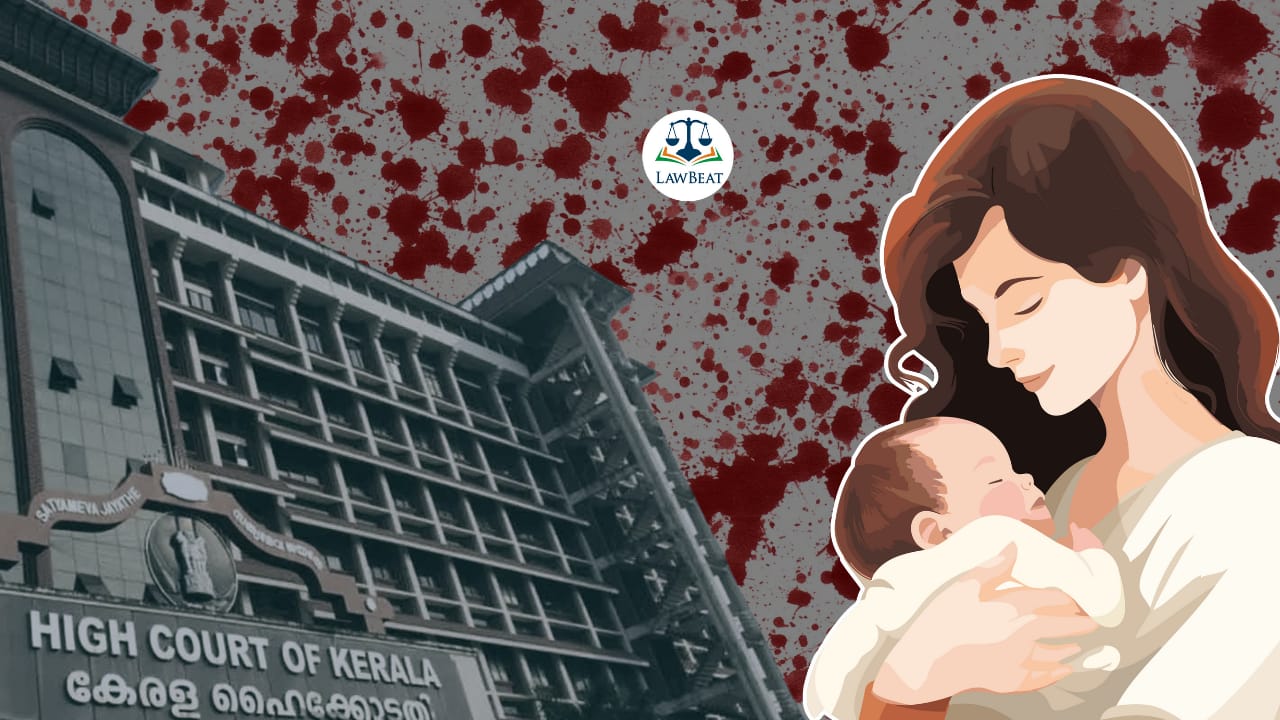Kerala HC Allows Insanity Plea, Acquits Mother for Killing Child by Strangulation

The court noted the investigation's flaws, including the failure to conduct a medical examination of the accused, and emphasised the importance of adopting scientific methods in investigations
The Kerala High Court, overturned a trial court's conviction, acquitting a woman charged with strangling her 1½-year-old son by holding onto the neck, on grounds of insanity. The court acknowledged the accused's severe mental health condition at the time of the incident, concluding she was incapable of understanding the consequences of her actions.
A Division bench of Justice Raja Vijayaraghavan V and Justice P.V. Balakrishnan, pointed to the flawed investigation done by the police and stated, “We are convinced that the Investigating Officer was duty-bound to investigate the mental condition of the accused and determine whether she suffered from any unsoundness of mind that incapacitated her from understanding the grievous nature of her actions.”
The case stemmed from the death of Alex, the younger child of the appellant/ accused, on April 18, 2018. The appellant, a 39-year-old mother of two, lived with her husband, Joy (PW1). The elder child had autism. On the evening of the incident, Joy, a mason, was at work, leaving the appellant alone with their children. The prosecution alleged that the appellant intentionally strangled Alex at approximately 6:30 p.m. Subsequently, Joy reported the matter to the police, claiming the child had accidentally fallen from a cot. However, medical examinations contradicted this account, confirming that strangulation caused the boy’s death.
Relying on circumstantial evidence, including the appellant's alleged confession and medical findings, the Additional Sessions Court in Thodupuzha convicted her under Section 302 of the Indian Penal Code (IPC).
The appellant, represented by Advocate Manju Antoney, challenged the decision of the Sessions Court, arguing that she was suffering from severe mental health issues, supported by expert testimony. The medical expert informed the court that the appellant had a history of psychosis, hallucinations, and depression with suicidal tendencies, as evidenced by her suicide attempt two days after the incident. Records revealed a family history of psychiatric disorders, and she had been receiving psychiatric treatment since 2007. Despite her diagnosis, the trial court had rejected her insanity plea, stating insufficient evidence was presented to prove a lack of culpability under Section 84 of the IPC.
The High Court noted that the appellant had been undergoing psychiatric treatment both before and after the incident. Her condition impaired her cognitive abilities, rendering her incapable of rational thought or awareness of her actions' consequences.
The Investigating Officer admitted before the court that he did not deem it necessary to probe the appellant's mental health adequately despite early indications of mental illness. Criticising the investigative shortcomings, the court observed, “The filing of the charge sheet by the Investigating Officer, without ascertaining the mental state of the accused, reflects a dishonest approach, rendering the charge sheet defective due to the lack of investigation into this critical aspect. It can be reasonably inferred that the deliberate suppression of an investigation into the accused's mental state was aimed at securing a conviction, even though the acts, when considered alongside Section 84 of the IPC, may not constitute an offence.”
The court emphasised that a defective investigation cannot override substantive evidence pointing to the truth. “An investigation becomes compromised when it involves suppression of critical facts, injuries, the applicability of exceptions, or other material evidence, which if produced may show a totally different picture. Such suppression transforms a fair investigation into a biased and perfunctory exercise, resulting in a distorted narrative,” the court said.
The court, in its judgment, appreciated the Bharatiya Nagarik Suraksha Sanhita, 2023, for introduction of technological integration across all stages of criminal justice, emphasising speedy trials and transparency. “Such measures will not only ensure greater accountability in police investigations but also improve the quality of evidence, thereby safeguarding the rights of both the accused and the victims,” the court remarked.
The court also suggested the creation of a centralized knowledge repository to guide inexperienced officers with legal updates, investigative techniques, and expert advice. It emphasised that such a system, coupled with training, would enhance evidence collection, address challenges posed by advanced technology, and ensure justice through efficient and scientific crime investigations. The court also highlighted the urgent need for a dedicated investigating wing within the police force that continually updates its knowledge and skills by leveraging advancements in technology.
The court concluded that the prosecution's failure to investigate this critical aspect rendered the charge sheet defective. Consequently, the appeal was allowed, and the appellant's conviction under Section 302 IPC was set aside.
Cause Title: Rollymol v State of Kerala [CRL.A NO. 964 OF 2020]
Senior Public Prosecutor Neema T.V. appeared for the State.
